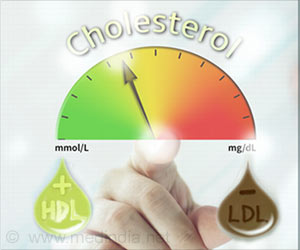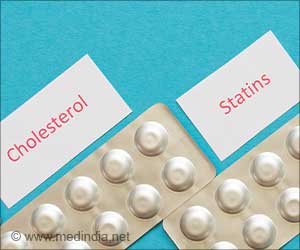South Asian immigrants in America have a higher risk of heart disease than any other segment of the American population, according to a new study.
Washington: South Asian immigrants in America have a higher risk of heart disease than any other segment of the American population, according to a new study led by an Indian American doctor.
The trouble, Medical College of Georgia (MCG) researchers suspect, is that their high-density lipoprotein, or so-called good cholesterol, doesn't protect many of them like it should and their new lifestyle makes that situation worse."Research shows that while only 9 percent of whites develop coronary artery disease, between 18 and 25 percent of South Asian immigrants eventually develop it," says Dr. Sunita Dodani, MCG epidemiologist and cardiologist. "Interestingly, South Asians who live in their homelands have normal rates of the disease."
In most South Asians, dysfunctional HDL, first identified by the historic Framingham Heart Study, is likely caused by a mutation of Apo-A1, the gene responsible for coding the major protein component of HDL, Dr. Dodani says.
"HDL can only protect people from heart disease if it's functional," she explains. "The dysfunctional HDL and external risk factors like stress from moving and new jobs and high-fat diets make for a deadly combination."
Since joining MCG in October, Dr. Dodani, a South Asian immigrant herself, and collaborators at MCG and the University of California (UCLA) at Los Angeles have been studying 29 Augusta immigrants, looking for a connection between the gene mutation and dysfunctional HDL.
Blood samples were sent to UCLA to determine whether each subject had dysfunctional HDL. DNA sequencing helped researchers look for mutations of Apo-A1 and a portable carotid Doppler machine measured the thickness of carotid arteries, an indicator of impending coronary artery disease.
Advertisement
Dr. Dodani and her colleagues suspected that if a subject had thickening of the carotid arteries, he or she would also have dysfunctional HDL and a polymorphism of the Apo-A1 gene. This is the first time researchers have examined a possible correlation between the gene polymorphisms, dysfunctional HDL and arterial thickness.
Advertisement
"This is a strong indicator that these novel polymorphisms, which haven't been found in any previous studies, are linked to dysfunctional HDL," Dr. Dodani says. "These findings support our theory that the disease, in South Asians, is most likely caused by a combination of things - a dysfunctional HDL caused by a genetic polymorphism. Add the stresses of moving, high-stress jobs and high-fat diets and that could explain the high rates in immigrants and not those who stay in their homelands."
The next step, Dr. Dodani says, is expanding the study to include more people. She has applied for National Institutes of Health funding to do that over the next two years and eventually include other populations for comparison.
"Then we will be able to figure out what's next," she says. "If the cause is a combination of this gene mutation and other factors, are there preventive strategies that we can employ? Should cholesterol-lowering drugs be started earlier in certain populations? Those are questions we hope to eventually answer."
Source-IANS
SRM










